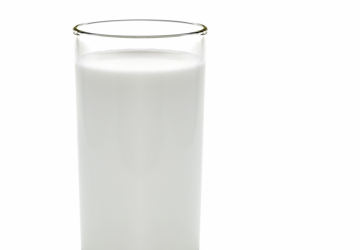“This government has nothing better to do than counting the grams of fat in a hamburger?” Washington, D.C. City Councilman David Catania asked incredulously this morning. The Council’s Committee on Human Services met today to consider legislation that would require nutritional labeling on restaurant menus and menu boards in the nation’s capital. The bill would mandate that calories, carbohydrates, saturated fat, trans fat, and sodium be measured for every menu item, and then plastered on the menus of all restaurants with ten or more national locations. Not surprisingly, the food cops at the Center for Science in the Public Interest (CSPI) are pushing the idea relentlessly. But during the hearing, it became clear that CSPI may not have been completely honest about what its own legislation — also currently being considered in Congress and in six state legislatures — actually does.
D.C. Councilwoman Sandra Allen, who chairs the Committee on Human Services, began today’s hearing by noting that she is a supporter of menu labeling legislation, but only because several amendments (none of which have been made available to the public) satisfied her initial reservations. According to Allen, the revised bill would:
1) explicitly exempt daily specials;
2) explicitly exempt self-serve salad bars; and
3) explicitly allow for a “generous margin of error” in the counting of calories, fat, and various other nutrients.
But CSPI’s model legislation does none of those things, nor does the version recently introduced in the U.S. Congress (which uses CSPI’s language word for word). That makes us awfully suspicious of CSPI’s insistence that its bill “does not apply to customized orders or to daily specials.” Today Councilwoman Allen worried aloud that the original D.C. bill did not exempt daily specials. Is there any reason we shouldn’t be worried when the federal bill also provides no such exemption?
If daily specials had to be sent out to a lab before being served, that would be the end of daily specials. And no more soup du jour either. Thanks, CSPI.
Unlike the revised D.C. bill, CSPI’s federal legislation does not specifically allow for margins of error. Would a one-calorie mistake be too much? Ten? A hundred? The bill doesn’t say. And that leaves a huge opening for lawyers to start filing frivolous lawsuits based upon the unavoidable variation in restaurant fare.
Testifying at today’s hearing, D.C. Health Department Senior Deputy Director Theodore D. Gordon noted something else CSPI doesn’t want you to know: A restaurant could be shut down for miscounting the sodium in its soup. If the D.C. bill became law, Gordon’s health inspectors would deduct points from restaurants for serving a baked potato that was too big — a penalty usually reserved for violations like finding cockroaches in the kitchen. Accumulate enough demerits, and the doors of the restaurant are sealed.
After hearing testimony from CSPI’s Margo Wootan, Councilman Catania asked an interesting question: If CSPI cares so much about menu labeling, why doesn’t it offer to pay for the testing needed to count calories, sodium, carbs, and fat grams? Wootan ducked the question. Catania asked again. And again. At one point Wootan said she didn’t think it was a serious question. Oh, but it was, Catania insisted.
And why shouldn’t CSPI pay the expenses required to satisfy its own ridiculous agenda? According to a list CSPI submitted to the City Council, 79 separate restaurant chains would be affected in Washington, D.C., alone. About one third of those, according to CSPI, have already spent a CSPI-estimated $18,000 each to test the nutritional information of their menu items. The total cost for testing the remaining chains, according to CSPI’s lowball calculations, would come in under $1 million, which is certainly within the group’s reach. CSPI has a $14 million annual budget, and — as they point out again and again — this would only be a one-time cost.




